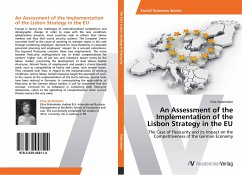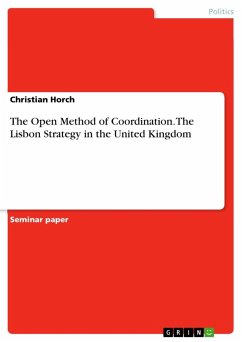
The Politics of the Lisbon Agenda
Governance Architectures And Domestic Usages Of Europe
Herausgeber: Borras, Susana; Radaelli, Claudio
Versandkostenfrei!
Versandfertig in 1-2 Wochen
117,99 €
inkl. MwSt.
Weitere Ausgaben:

PAYBACK Punkte
59 °P sammeln!
In the year 2000, in Lisbon, the European Union launched an agenda for growth, jobs, sustainability and competiveness with a ten-year target. In 2010, the agenda was re-launched with different specific objectives but with the same final goals. Why do the European Union leaders engage with these ten-year plans? What exactly do they commit to when they do so? Do they learn from the results, or is this a rhetorical exercise that complex organizations need to raise attention to certain issues? This volume is the first-ever systematic study of the Lisbon agenda of the European Union, now called Europe 2020. It explains the rise of the Lisbon agenda as governance architectures and examines its components across time and sectors. This book was published as a special issue of the Journal of European Public Policy.
This book analyses the institutional and administrative achievements of the Lisbon agenda, most ambitious plan of the European Union over the last ten years. It was published as a special issue of the Journal of European Public Policy.














